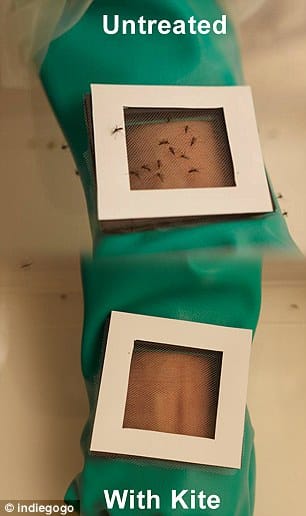Mosquito bite is really irritating. Wouldn’t that be great if the mosquitoes can’t see us and hence can’t bite? Seems like that day is not too far. Lately, scientists have devised a new device called Kite Patch, which they claim make humans ‘invisible’ to mosquitoes!
According to the World Health Organisation, around 660,000 people died due to Malaria in 2010. In fact, most of the people in Africa usually dies of Malaria. Malaria is spread due to mosquito bite. And to prevent Malaria from spreading, scientists at University of California in collaboration with Olfactor laboratories along with the help of the Bill and Melinda Gates Foundation as well as the National Institutes of Health have devised Kite Patch.
Kite Patch is a simple square sticker which you have to stick on your clothing. In fact it has been designed to be durable, affordable everywhere, and can be put not only on clothing but also bags, baby strollers, or whatever else you’re using. The patch makes use of non-toxic compounds that disrupt the mosquito’s ability to locate its prey by blocking the pest’s ability to detect carbon dioxide, which is their primary method of tracking human blood. This square essentially works like an invisibility cloak against mosquitoes, turning the user invisible to the pests for up to 48 hours. Here’s a video how Kite works.
Although crowdfunding website Indiegogo has successfully raised $75,000, still it is raising more funds to send 20,000 Kite patches for large-scale testing in Uganda, where malaria rates are over 60 percent.
Kite co-founder Torrey Tayenaka believes if the Kite patch works as promised, it will definitely do a lot of good globally, and definitely put a dent in the huge number of deaths caused by Malaria.
Source: Indiegogo
[ttjad keyword=”security”]





Nice, but DDT is very effective and not harmful. Sadly, environmentalists have vilified it with pseudo-science, resulting the the deaths of millions.
DDT was never banned in countries where malaria is a major problem. As one of the earliest and very effective pesticides in use it was also one of the most overused pesticides resulting in insect resistance and bio-accumulation related to the long breakdown time for one of its parts DDE. Yes DDT has saved many lives by controlling malaria and yet the huge eradication program relying heavily on DDT was in the end a failure.